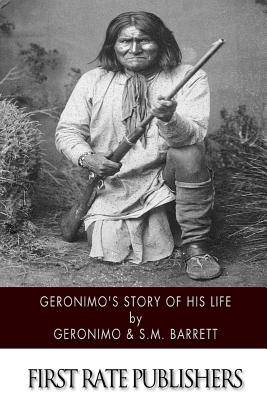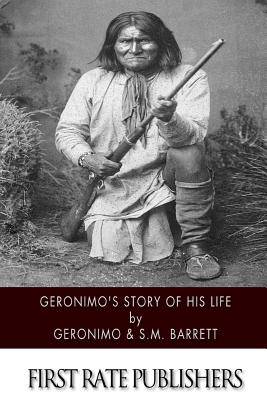
- Retrait gratuit dans votre magasin Club
- 7.000.000 titres dans notre catalogue
- Payer en toute sécurité
- Toujours un magasin près de chez vous
- Retrait gratuit dans votre magasin Club
- 7.000.0000 titres dans notre catalogue
- Payer en toute sécurité
- Toujours un magasin près de chez vous
Description
The name "Geronimo" evokes a number of different emotions. Those who believed in 19th century America's "Manifest Destiny" viewed Geronimo and all Native Americans as impediments to God's will for the nation. Descendants of people killed by "hostile" Natives certainly considered warriors like Geronimo to be murderers and thieves whose cultures and societies held no redeeming values. Even today, many Americans associate the name Geronimo with a war cry, and the name Geronimo itself only came about because of a battle he fought against the Mexicans. Over time, however, the historical perception of the relationship between America and Native tribes changed drastically. With that, Geronimo, or Goyahkla, was viewed in a far different light. Those who empathized with the fate of the Native Americans saw Geronimo as one of a number of Native American leaders who resisted the U.S. and Mexican governments as their lands were being appropriated, often eluding large numbers of soldiers pursuing them. Unfortunately, Geronimo's story and that of his people is very similar to those of the majority of Native American peoples. It is a history of theft, murder, and misunderstanding that eventually led to the complete domination of Native Americans throughout both North and South America. Like many Native Americans of his time, Goyahkla felt that all Native peoples would soon be gone, but his people endured and survived to return to their native lands and settle elsewhere. In 1867, General Ulysses S. Grant appointed General Philip Henry Sheridan to command of the Department of the Missouri and charged him with pacifying the Native Americans on the plains. Sheridan had commanded The Army of the Shenandoah during the Civil War and had deliberately and meticulously destroyed crops and supplies throughout much of the Shenandoah Valley. Simultaneously, the Union troops seized all the livestock and slaves they found to prevent re-planting of destroyed crops. During the campaigns against the Chiricahuas, these tactics were used repeatedly and were employed by both Mexican and U.S. troops to deny the enemy all the necessities of life and thus diminish the ability to fight.
Spécifications
Parties prenantes
- Auteur(s) :
- Editeur:
Contenu
- Nombre de pages :
- 122
- Langue:
- Anglais
Caractéristiques
- EAN:
- 9781505923957
- Date de parution :
- 04-01-15
- Format:
- Livre broché
- Format numérique:
- Trade paperback (VS)
- Dimensions :
- 152 mm x 229 mm
- Poids :
- 172 g

Les avis
Nous publions uniquement les avis qui respectent les conditions requises. Consultez nos conditions pour les avis.






